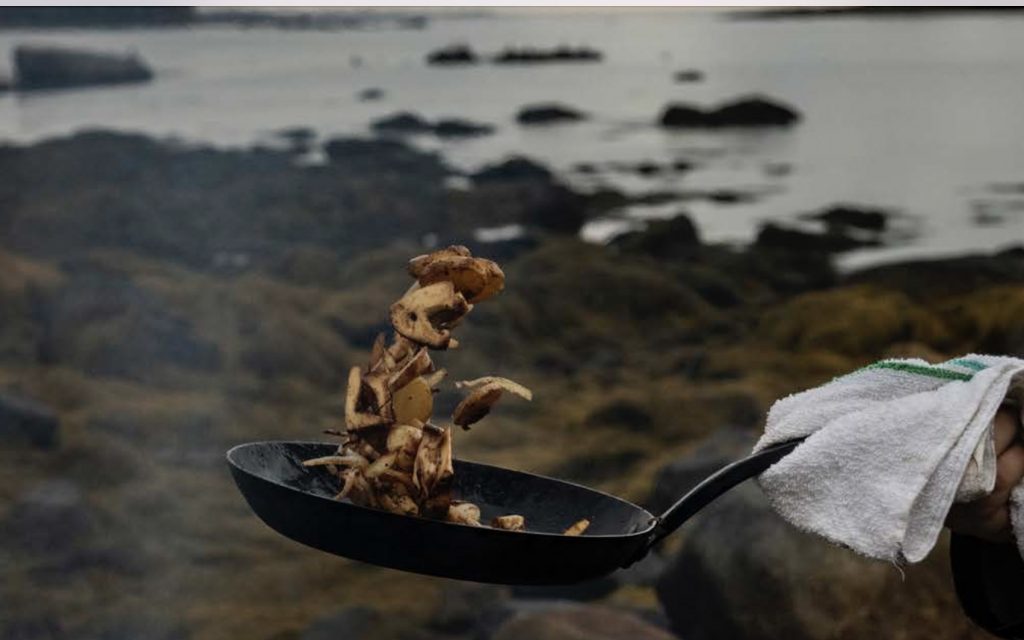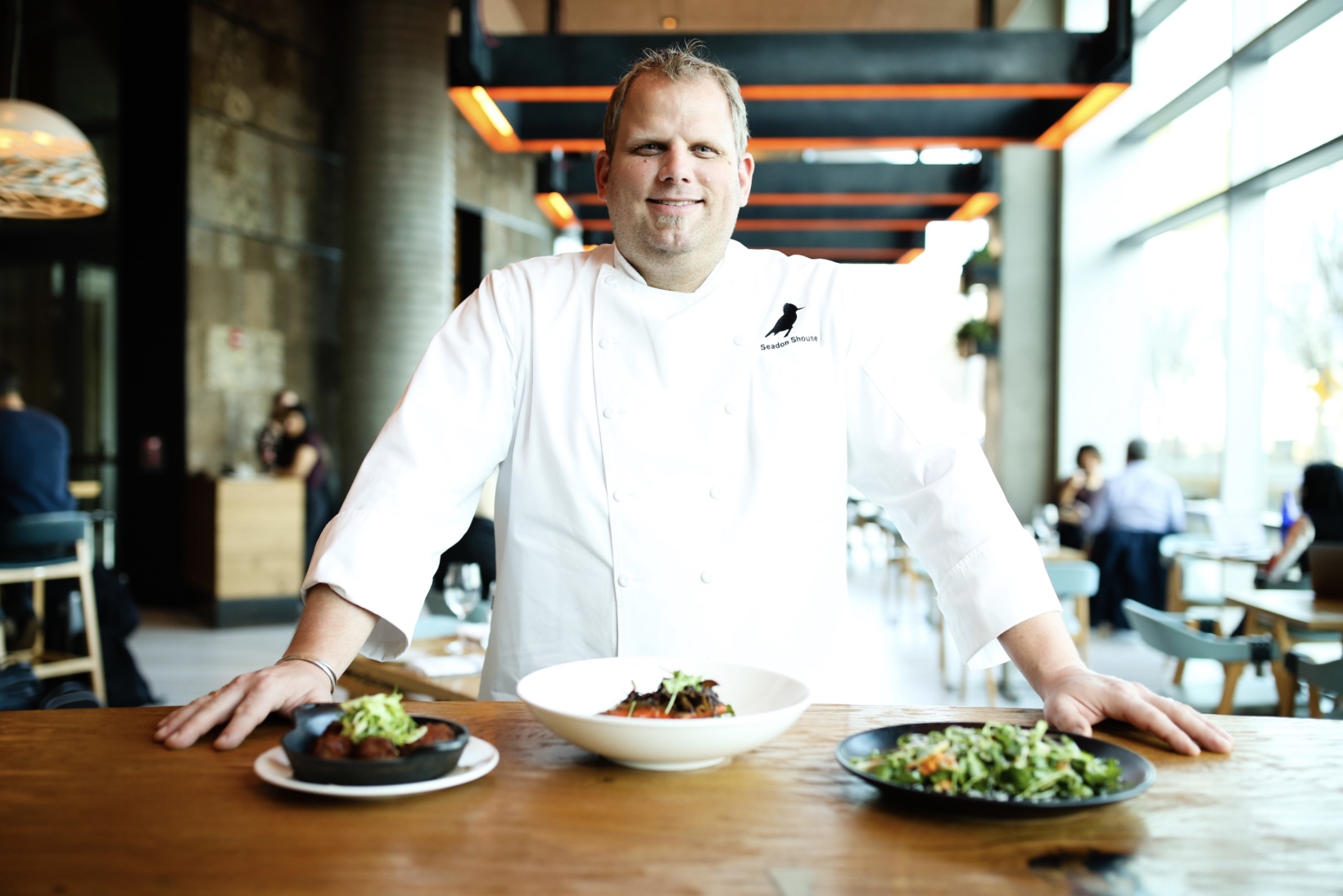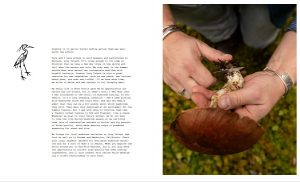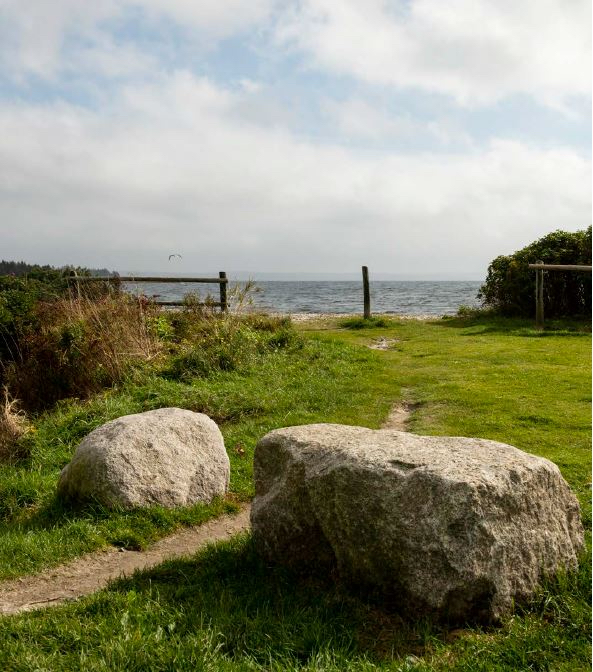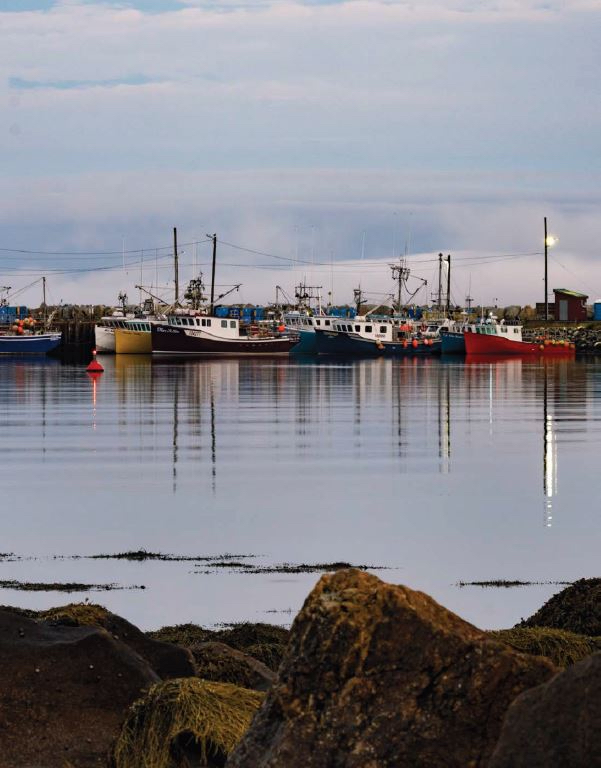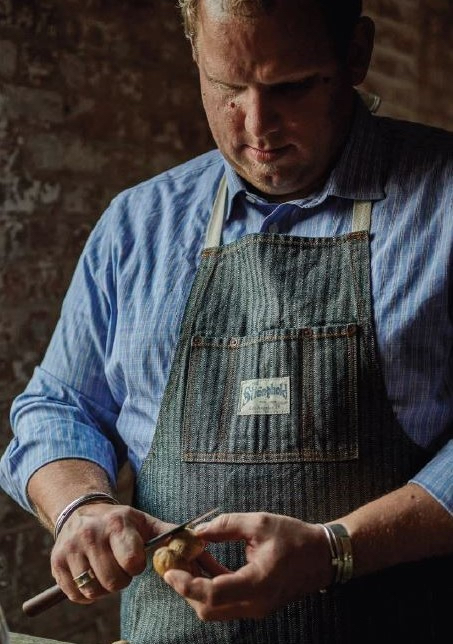“Real cooking is about following your heart rather than the recipe, because cooking is more than just a blending of ingredients from land, sea, and farm”, says Chef Seadon Shouse; the notable Nova Scotia chef who brought its cuisine to the Hoboken coast. In his new memoir, From the Hill by the Sea, Chef Shouse, now the Executive Chef of Halifax Hoboken, details through recipes and personal stories his philosophy on the culture of food, cooking, and life.
From the Hill By the Sea is a unique, entertaining traverse through discovery and culinary delight, as Chef Shouse weaves his memories of childhood fishing and foraging, with mushroom hunting, and cooking both indoors and out.
“My intention was to draw readers out and inspire them to try new (and wild) ingredients and cooking methods,” says Chef Shouse.
Recipes feature unique twists on mackerel, oysters, salmon, periwinkle dishes, and an open fire-roasted chicken recipe. The master chef introduces techniques broken down into simple steps. Homespun sides like Biscuit Dough Boys (cooked on a stick), Bread and Butter Vegetable Pickles, Roasted Brussel Sprouts, Brown Sugar Bacon and his twist on Nova Scotia’s famous Blueberry Grunt, delight the senses and create delectable, sustainable meals.
Chef Shouse’ recipes and stories hail from his childhood spent in Coastal Nova Scotia where the connection between food, land, and sea is a direct and intimate experience. He encourages the reader to step out of their comfort zone and into an ocean of possibilities that opens up a whole new chapter for the exploratory, yet sustainably-minded cook.
“My first memory of foraging is picking wild blueberries with my sister in front of our house in Eagle Head, Nova Scotia. Low bush blueberries grow wild throughout North Atlantic coastal areas. Their flavor is sweeter and more intense than high bush blueberries that grow in warmer climates,” says Chef Shouse, in the opening chapter of his book. “There was no hiding how much my sister and I had consumed while picking since the purple stains take hours to disappear from your lips. We would make pies, pancakes, jams, or desserts like blueberry grunt, with whatever we hadn’t devoured.”
From the Hill by the Sea is a lovely combination of prose, recipes, and imagery that work to bring Chef’s readers closer to nature and to the source of our food, while revealing a very personal sense of place and being.
In a recent conversation, Chef explained that on a rare day off he enjoys foraging for mushrooms, beach plums, and seaweeds, as well as cooking together with his wife at their home. On this rare day, however, he was also kind enough to answer a few questions about his new memoir, life in the food & service industry, and was even willing to share a salty tale about The One That Got Away …
- From Land
- and Sea
- to Table
A Conversation with Chef Seadon Shouse
Anthony Brancaleone: Do you think you have taken the same approach to food had you not lived by the sea or is the sea instrumental in your journey?
Chef Seadon: Living by the sea has for sure influenced my cooking and the way I look at food. Being exposed to wild mussels, periwinkles and lobsters at a young age has started my appreciation for all things from the sea at a young age.
__________
AB: Do you have a favorite meal from your childhood? Something, that has stayed with you in a significant way?
Chef: One of my fondest memories of food was whole mackerel cooked in a cast iron pan for breakfast cooked by my father in Eagle Head Nova Scotia. He also caught this fish in front of our house. Still one of my favorite food memories.
__________
AB: Michael Barry, the owner of Halifax, says that your recipes are “inventive, sophisticated yet earthly, all of which create an intimate culinary experience”. Apart from recipes are you able to share with those of us considering life in a famed restaurant some of the challenges that accompany your profession?
Chef: Some challenges of being a chef are staffing. I have seen a change in kitchen staff over the past 20 years and it is harder now to find the right cooks and chefs in the kitchen. The cost of Food products have always fluctuated but recently the pricing of products sometimes changes daily and can be drastically different from one week or month to another. Another challenge for me as a chef is finding the balance of working and having time off with my wife and family.
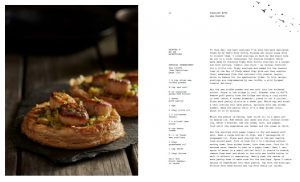
AB: What is your philosophy on the relationship between the front and back of the house?
Chef: The relationship between the FOH and the BOH is extremely important as both are equally necessary for a great dining experience. The FOH are an extension of the chefs voice by conveying to the guests specials, new menu items and explaining how dishes on the menu are made.
__________
AB: And, in general, what responsibility does a Chef have to his patrons?
Chef: A chefs responsibility to their patrons is to be honest about food items that they are serving, cook the freshest products possible, at a fair price.
__________
AB: What other chefs’ food are you now eating? Any recommendations for who else should be on our radar?
Chef: Some of my favorite restaurants right now are 63 Clinton by Sam Clonts and Raymond Trinh in Manhattan, and in my Brooklyn neighborhood, Harts on Franklin St.
__________
AB: Are there movies or a series that your watching that you feel accurately depicts the life of a Chef?
Chef: Even though it is animation I really liked Ratatouille, it is not so much accurate of the life of a chef now but more like it was to be a chef 20+ years ago. It brought back some memories of my earlier chef years.
__________
AB: And, are there any books that have worked as an inspiration for your life in a restaurant?
Chef: I am currently working my way through Josh Niland’s, Take One Fish and I am eagerly awaiting his next book release of Fish Butchery. Yes I love cooking fish.
__________
AB: Understood. But, first, you must catch them. As a fisherman, I assume you have many stories about “The One that Got Away”…
Chef: … This is not as much a story of ‘the one that got away’ as it is the “many that we got”. My uncle was visiting us in Nova Scotia when I was young, maybe 6yr old and my father decided that we should go fishing from our small boat in front of our house. It was my father, uncle, sister and myself and we got into a school of mackerel and as fast as the hook hit the water we got a mackerel on the line. We got so many mackerel that day that they filled the bottom of the boat.
AB: I suppose the proper phrase for that would be, “Holy Mackerel”?
